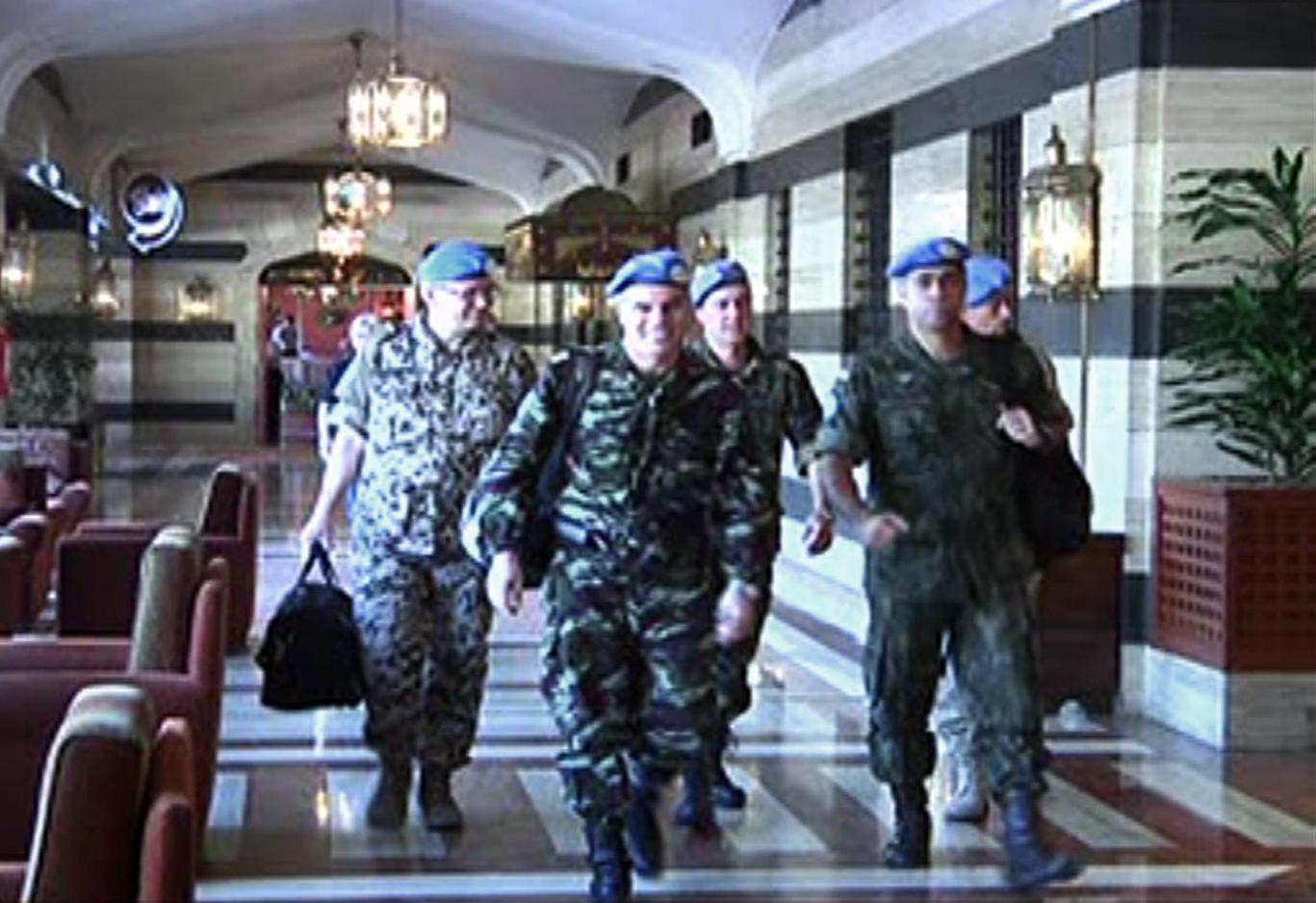Syria: UN monitors tour Deraa amid reports of deadly shelling in Idlib, Homs
A group UN monitors who arrived in Syria earlier this week walks through the lobby of a Damascus hotel on April 17, 2012.
UN monitors have arrived in Deraa, the birthplace of Syria's 13-month uprising, with activists questioning why they did not choose to visit a more violent location.
Meanwhile, French foreign minister Alain Juppé has said that international sanctions on the Syrian government have had the desired effect of putting financial pressure on Damascus to end the bloody crackdown on opponents.
An oil embargo and sanctions on Syria's central bank — coordinated by a group of 57 countries called Friends of Syria — are damaging Syria’s ability “to finance and arm militias, the lethal shabiha death squads,” the Irish Times quoted Juppé as saying, and helping to maintain a fragile cease-fire that began six days ago.
More from GlobalPost: Has Israel dodged the regional crisis?
An advance team of UN observers, sent to monitor the Syrian truce, arrived in the capital, Damascus, late Sunday, while the remaining 24 members of the advance team were expected to arrive there in the coming days.
Britain's Daily Telegraph quoted the team's leader, UN Colonel Ahmed Himmiche as saying: "We can say that we are moving ahead, the task for us is to liaise with the Syrian forces and also with the other parties."
The observers had made an "excellent" trip to the southern city, meeting with the governor there, Himmiche reportedly said.
Activists did concede there had been "massive destruction" from artillery shelling in the nearby Deraa province town of Basr al-Harir.
More from GlobalPost: UN Security Council authorizes team of observers to monitor Syria cease-fire
Meanwhile, Idlib — the northern city near the Turkish border — reportedly weathered a second day of attacks by the Syrian army, with up to 50 people reported dead, according to the LA Times.
And shelling and eight deaths were reported by activists in Homs. Videos purporting to be from the Bayada and Khalidya districts showed explosions kicking up dust and smoke clouds above the city, the Independent reported.
The paper quoted an activist there as saying: "Why aren't the observers here to see the destruction in Homs? It's here that the shells are falling every single day."
The paper quoted a local spokeswoman, Rafif Jouejati, as saying: "[The monitors] need to focus on some of the hardest-hit areas, like Idlib and Homs. But I suppose, because of their extremely limited number and no guarantees of safety, they have to start somewhere comparatively quiet."
More from GlobalPost: Syria: How it all began with a couple of kids and a can of spray paint
A spokesman for UN Secretary-General Ban Ki-moon, Ahmad Fawzi, said Wednesday that the observers would "start with setting up operating headquarters and reaching out to the Syrian government and the opposition forces so that both sides fully understand" their role, the Irish Times wrote.
According to DP News, Ban said Monday that the Syrian government was responsible for guaranteeing observers full freedom of movement to monitor the country’s cease-fire, which he said was being "generally observed." He did, however, note the violence in Idlib and Homs, and made mention of Deraa.
He also said that to oversee an end to violence in Syria, the UN may need to bring in aircraft and deploy troops.
